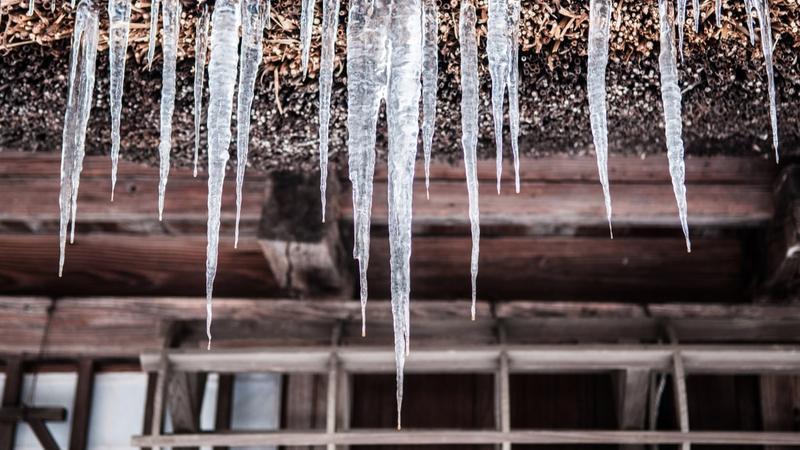Most Canadian homeowners know firsthand how hard winter can be on a home. Ice, snow, wind, and freezing temperatures can wreak havoc on your property.
By not taking the proper steps to protect your house from the effects of winter, you could face unpleasant and possibly expensive home damage, which may not be covered by your home insurance policy.
Here are some tips to prevent property damage during the harsh winter months.
Damage caused by freezing water pipes
Frozen or burst pipes can be a real headache. Pipes that run along the exterior walls of your house are exposed to extreme cold temperatures and therefore, more vulnerable.
Tips to prevent your pipes from freezing
- Insulate pipes that run along the exterior wall of your home or those located in unheated areas with insulation sleeves. Look for vulnerable pipes in the basement, attic, garage, and crawl space.
- Seal air leaks in your home and garage to stop cold air from getting in. Pay special attention to areas around windows and doors, electrical wiring, dryer vents, and pipes.
- Going away? Resist the temptation to turn off your heat; keep your house heated while you are gone and as an added precaution, have someone you trust check on your house while you are away.
- If the weather hits extreme cold temperatures, open faucets connected to at-risk pipes and let water drip slowly. Open kitchen, bathroom and laundry room cabinet doors to allow warm air to circulate around the plumbing.
The first sign of a frozen pipe is usually little or no water when you open your taps. Should the worst happen and your pipes freeze, call a plumber and make sure you know where your main water shut-off valve is and how it works. If the pipe breaks you will need to shut off the water in your house until the pipe is repaired.
Damage caused by ice dams
Ice dams occur when snow or ice build up on your roof preventing water from draining properly. Ice dams can cause water to leak into your roof, tear off gutters and eavestroughs, and loosen shingles.
Tips to prevent ice dams
- Ensure that the area around your eaves and downspouts is clear of snow and icicles so that water can drain from your roof.
- If possible, clear the edge of your roof of excess snow with a roof rake after a major snowstorm. If you are unable to do it or it doesn’t seem safe, consider hiring a contractor to help.
- Make sure your attic is well ventilated and insulated.
Ice dams are not generally caused by an old or deteriorated roof; the main culprit is typically a poorly or improperly insulated attic. If you notice your home is prone to ice dams, it's worth getting a contractor to look at it and see if there are ways to minimize the risk of damage.
Flood damage caused by the spring thaw
As winter (finally) begins to fade away and the snow starts to melt, it’s vital to keep flood prevention top of mind. Melting snow can also cause major water damage.
Tips to prevent spring thaw flooding and damage
- Clear the snow around the perimeter of your home’s foundation, especially any snow that has piled around your basement windows.
- Remove obstructions that will prevent melting snow from draining away from your house.
- Install a sewer backwater valve to minimize the chance of water entering the house through your basement floor drain.
- Clear debris from your gutters and downspouts, and if it’s safe to do so, also from the roadside catch basins to help water enter the storm sewer.
- Play on the safe side and move valuable items kept in your basement to a higher floor during major thaws.
Water damage from frozen pipes, ice dams, and flooding can be extensive and expensive. In case of any negligence on your part, your home insurance policy may not cover this damage. Make sure you check with your insurance company and take all necessary precautions to keep your home safe and protected against winter hazards.
